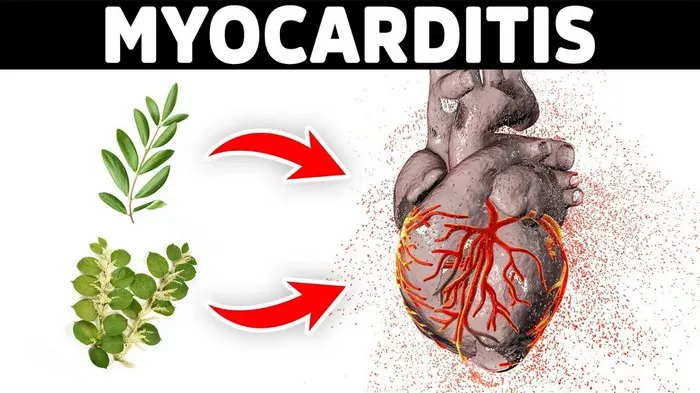Myocarditis, an inflammatory condition of the heart muscle, presents a complex challenge in the realm of cardiovascular medicine. Characterized by inflammation and damage to the myocardium, myocarditis can lead to a spectrum of symptoms ranging from mild discomfort to severe heart failure and sudden cardiac death. Despite advances in medical science, determining the best course of treatment for myocarditis remains a topic of ongoing research and debate. In this article, we delve into the various therapeutic strategies, assess their efficacy, and explore emerging treatments that hold promise in the management of this condition.
Pathophysiology and Clinical Presentation
Before delving into treatment modalities, it is essential to grasp the underlying mechanisms and clinical manifestations of myocarditis. The pathophysiology of myocarditis involves an immune-mediated response triggered by infectious agents, toxins, drugs, or autoimmune processes. Inflammatory infiltrates, consisting of lymphocytes, macrophages, and other immune cells, infiltrate the myocardium, leading to cellular injury and dysfunction.
Clinically, myocarditis may manifest with a wide array of symptoms, including chest pain, dyspnea, palpitations, fatigue, and signs of heart failure such as edema and orthopnea. Diagnosis often requires a combination of clinical assessment, imaging modalities such as echocardiography and cardiac magnetic resonance imaging (MRI), laboratory testing including cardiac biomarkers, and endomyocardial biopsy in select cases.
Conventional Therapeutic Approaches
Historically, the treatment of myocarditis has focused on supportive care aimed at managing symptoms and mitigating complications. Bed rest, diuretics, and angiotensin-converting enzyme (ACE) inhibitors or angiotensin receptor blockers (ARBs) to reduce cardiac workload have constituted the cornerstone of therapy. Additionally, anti-inflammatory agents such as nonsteroidal anti-inflammatory drugs (NSAIDs) or corticosteroids have been employed in some cases to attenuate the inflammatory response.
However, the efficacy of these conventional approaches remains uncertain, with limited evidence supporting their use in improving clinical outcomes or altering the natural course of the disease. Moreover, the potential adverse effects associated with long-term use of medications like corticosteroids underscore the need for alternative treatment strategies.
Emerging Pharmacotherapies
In recent years, there has been growing interest in identifying targeted pharmacotherapies that address the specific pathogenic mechanisms underlying myocarditis. One such approach involves the use of immunomodulatory agents to modulate the immune response and attenuate myocardial inflammation.
Among these agents, intravenous immunoglobulin (IVIG) has shown promise in certain subsets of myocarditis patients, particularly those with suspected autoimmune etiologies. IVIG exerts immunomodulatory effects by modulating the activity of various immune cells and neutralizing autoantibodies, thereby dampening the inflammatory cascade.
Similarly, immunosuppressive therapies such as corticosteroids, azathioprine, and mycophenolate mofetil have been explored in the management of myocarditis, particularly in cases associated with autoimmune or granulomatous etiologies. These agents aim to suppress aberrant immune responses and limit myocardial injury, albeit with varying degrees of success and potential side effects.
Role of Antiviral Therapy
Given the significant proportion of myocarditis cases attributed to viral infections, antiviral therapy has emerged as a potential therapeutic avenue in select patients. Viral myocarditis, often caused by enteroviruses, adenoviruses, or parvovirus B19, presents a unique challenge due to the intricate interplay between viral replication and host immune responses.
Antiviral agents such as interferons, ribavirin, and ganciclovir have been investigated for their efficacy in inhibiting viral replication and reducing myocardial inflammation. However, clinical data supporting their use remain limited, and the optimal timing and duration of antiviral therapy in the setting of myocarditis warrant further exploration.
Novel Approaches: Cell-Based Therapies and Immunomodulation
In addition to conventional pharmacotherapies, emerging modalities such as cell-based therapies and immunomodulation hold promise in revolutionizing the treatment landscape for myocarditis. Cell-based therapies, including mesenchymal stem cell (MSC) transplantation and cardiac progenitor cell therapy, offer the potential for myocardial regeneration and tissue repair by promoting endogenous repair mechanisms and modulating the immune response.
Similarly, targeted immunomodulatory agents aimed at specific molecular pathways implicated in myocarditis pathogenesis represent a burgeoning area of research. Biologic agents targeting cytokines such as interleukin-1 (IL-1) and tumor necrosis factor-alpha (TNF-α), as well as monoclonal antibodies directed against immune cell surface markers, have shown encouraging results in preclinical studies and early-phase clinical trials.
Individualized Treatment Strategies: The Road Ahead
As our understanding of myocarditis continues to evolve, the concept of personalized medicine has gained traction in tailoring treatment strategies to the specific underlying etiology and clinical phenotype of each patient. Biomarkers such as cardiac troponins, inflammatory cytokines, and viral genomes may provide valuable insights into disease severity, prognosis, and response to therapy, enabling clinicians to optimize treatment decisions and prognosticate more accurately.
Furthermore, advances in imaging modalities such as cardiac MRI offer unprecedented capabilities in detecting myocardial inflammation, characterizing tissue injury, and monitoring therapeutic response over time. The integration of multimodal imaging with molecular diagnostics and advanced analytics holds the potential to revolutionize the diagnosis and management of myocarditis, ushering in an era of precision medicine.
Conclusion
In conclusion, the optimal treatment for myocarditis remains a complex and multifaceted challenge, necessitating a nuanced approach that addresses the diverse etiologies, pathogenic mechanisms, and clinical phenotypes associated with this condition. While conventional therapies provide symptomatic relief and supportive care, emerging pharmacotherapies, novel interventions, and personalized treatment strategies offer hope for improved outcomes and enhanced quality of life for myocarditis patients. Continued research efforts aimed at unraveling the underlying pathophysiology, identifying novel therapeutic targets, and conducting rigorous clinical trials are paramount in advancing the field and ultimately achieving the best possible outcomes for individuals affected by this challenging condition.

